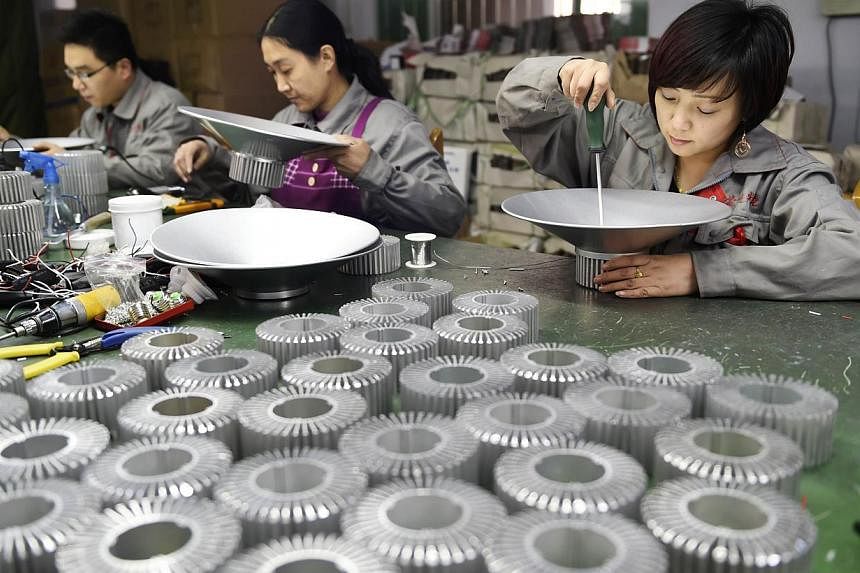BEIJING (REUTERS) - Growth in China's factory sector slowed as expected in December, a government study showed on Thursday, underlining the challenges facing the country's manufacturers as they fight rising costs and softening demand in a cooling economy.
The Chinese economy looks set to start 2015 on a weak note, reinforcing expectations that authorities will have to roll out more stimulus measures to avert a sharper slowdown which could trigger job losses and debt defaults.
The official Purchasing Managers' Index (PMI) slipped to 50.1 in December from November's 50.3, but remained just above the 50-point level that separates growth from contraction on a monthly basis.
Analysts polled by Reuters had forecast a reading of 50.1.
"This indicates that industrial growth is still in a downward trend, but the pace (of declines) is slowing," Zhang Liqun, an economist at the Development Research Centre, said in a statement accompanying the report.
"The current economic situation is in the process of returning to stability from slowing down," Zhang said.
A similar private survey released on Wednesday showed activity shrank for the first time in seven months in December. That survey focuses on smaller companies, which are facing greater strains, notably higher financing costs and problems getting loans.
The official survey looks more at larger, state-owned firms, which have been more resilient, partly due to generous government subsidies and better access to credit.
Many analysts expect economic growth in the fourth quarter to slow only marginally from 7.3 per cent in the third quarter, though a raft of weak data may mean that is too optimistic.
That suggests full-year growth will undershoot the government's 7.5 per cent target and mark the weakest expansion in 24 years.
Economists who advise the government have recommended that China lower its growth target to around 7 per cent in 2015.
In a bid to spur growth and keep borrowing costs affordable, the central bank unexpectedly cut interest rate cut for the first time in two years on Nov. 21, while the economic planing agency has been approving more infrastructure projects.
Thursday's PMI suggested that export demand may be stabilising, which could help offset sluggish domestic consumption and the downdraft from the cooling property market.
An index for new orders - a proxy for foreign and domestic demand - retreated to 50.4 in December from November's 50.9. But new export orders continued to shrink but at a slower rate, climbing to 49.1 in December from 48.4 in November.
The PMI also showed big Chinese factories were weathering the downturn better than their smaller counterparts, as banks prefer to lend to state-owned firms, assuming the government will bail them out to prevent any defaults.
The PMI for large manufactures was 54.6 last month, while business shrank for small-to medium-sized factories.

